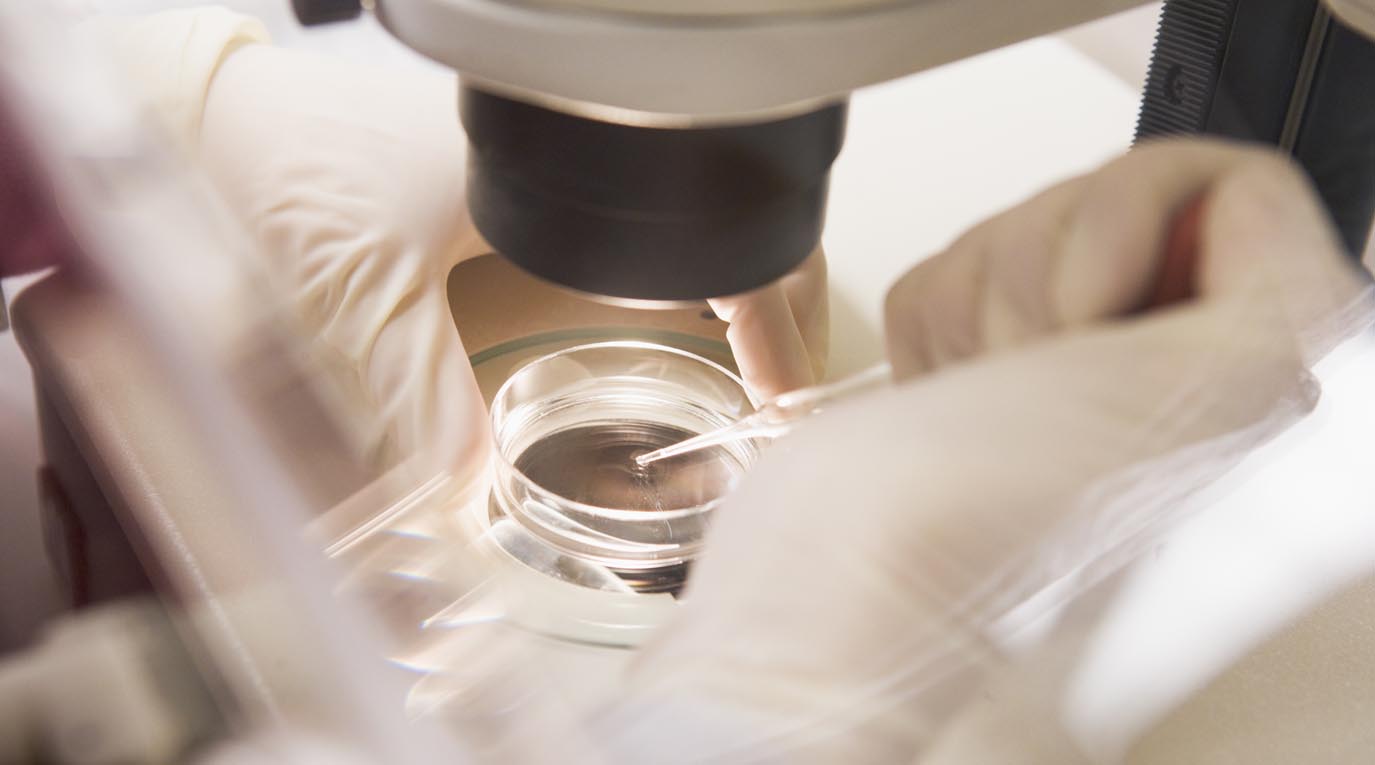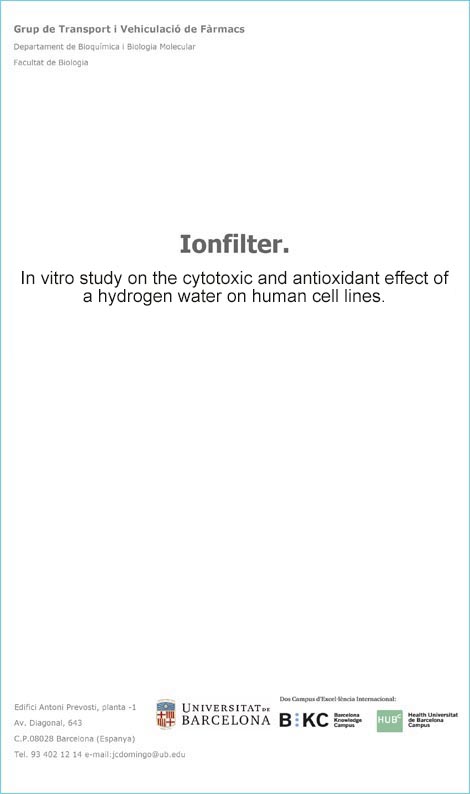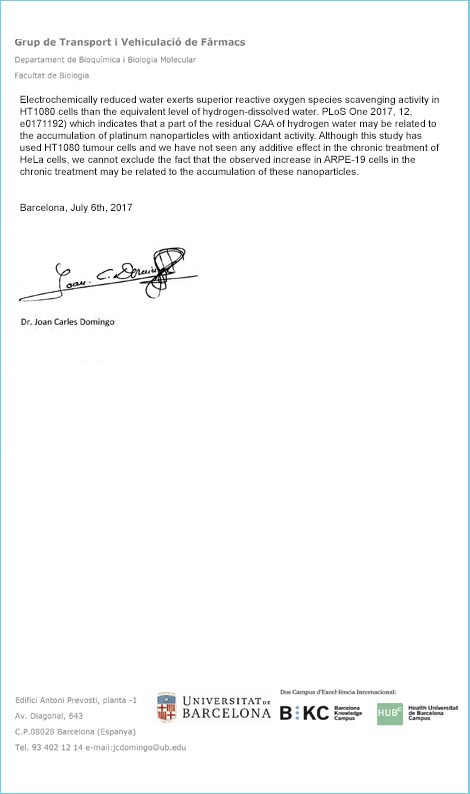In vitro study of hydrogen water on human cell lines
Cytotoxic and antioxidant effect of a hydrogen water and Hydron
Dr. Joan Carles Domingo. Grup de Transport i Vehiculació de Fàrmacs.
Departament de Bioquímica i Biologia Molecular. Universitat de Barcelona.

To carry out the study, we have used the Hydron equipment from the company Ionfilter, which is capable of producing a potential of -790 millivolts measured with a Milwaukee equipment, mod. ORP (Milwaukee Electronics Kft., Szeged, Hungary) In the culture medium it is slightly reduced to -650 millivolts.
Conclusions: Study in vitro with water hydrogen

Introduction and objective of this study
The purpose of this study is to determine the possible effects on vitality caused by electrolysed water and the presence of hydrogen gas in it, as well as the cell antioxidant activity by using two human cell models.
Two human cell lines were used for the study:
- - Normal ARPE-19 cells from the retina.
- - Cancer HeLa cells from cervical cancer.
Two types of treatment are carried out in cell cultures:
- - Acute: Hydrogen water is added and the cell viability or antioxidant effect trial is carried out..
- - Chronic: For this trial, the culture medium with hydrogen water is changed daily for three days until the trials are carried out.
Results: Cytotoxicity
2.1. For both the acute and chronic treatments with hydrogen water, it does not modify cell growth in healthy ARPE-19 cells compared to a conventional medium. This suggests that an alleged intake of hydrogen water is not toxic for normal cells.
2.2. 1.2 We have not detected either any changes in the cell growth of tumour HeLa cells, which have a higher cell growth.
Conclusion:
Lack of cytotoxicity of the hydrogen adsorbed in the water administered to cell cultures, independently of the administration schedule to the cells and of the degree of cell proliferation.
Innocuous treatment with no side effects or by-products after the neutralization reaction of free radicals.
The limit on hydrogen water consumption is determined by the logical limitation of water consumption, not H2 consumption.
Hydrogen water produced by Hydron is capable of increasing the antioxidant protection
See the complete Medical StudyResults and conclusions of in vitro study
exclusively for Hydron

Results: Atioxidant activity
3.1. It has been found that the H2 adsorbed in water is a moderate cell antioxidant, which is positive to maintain the homeostasis of cell oxidative stress compatible with life.
It has been confirmed that the antioxidant activity for cell protection is a general mechanism that occurs in both types of cells.
Its antioxidant activity is increased in both cell lines in a dose-dependent manner (the greater the dose is, the greater the antioxidant activity).
The average life of H2 in the cell is of, at least, one hour.
3.2. In chronic treatment:
In healthy cells, this method has proven to offer a greater level of protection and a higher antioxidant effect when compared to acute treatment.
On the other hand, chronic administration in tumour cells reduces the antioxidant protection with regard to acute treatment.
Conclusion
We could conclude that hydrogen water produced by this equipment is not toxic for human cells and is capable of increasing the antioxidant protection, both in acute and chronic treatments.
Furthermore, chronic treatments are more favourable than acute treatments, since they increase this antioxidant protection effect in healthy cells, but not in tumour cells.
